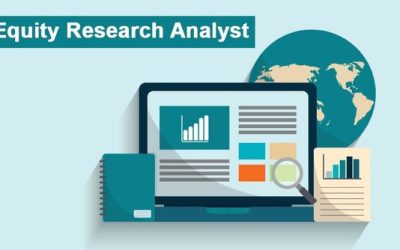Accenture and ID2020
Accenture is a founding member of the ID2020 Alliance, a global partnership committed to improving lives through digital identity. The initiative aims to make secure and portable identity for all a reality by 2030.
To get there, we need open standards and a collaborative governance framework. The alliance is playing a market-shaping role, giving direction to technology companies as they develop new tech and providing a route to technical interoperability, which leads to trust and recognition. Here we will discuss about : accenture is a founding member of id 2020 what is the focus of this alliance.
Also Read: which of the following is true of security classification guides
What is the focus of this allian?
Accenture is a founding member of ID 2020, which is a global partnership committed to furnishing people with digital identities that allow them to gain entry to crucial services and join the global economy. Its ultimate objective is to enable every person on the planet to have a secure, reliable, and portable identity that protects their privacy and enables them to control their data. This is an ambitious goal that will require multi-stakeholder collaboration to be successful.
The Alliance recognizes that a better model of digital identity will not emerge spontaneously. Instead, it will require sustained and transparent collaboration aligned around shared principles and supporting regulatory and policy frameworks. This will create the foundation for enabling technical interoperability and, ultimately, trust and recognition.
The Alliance’s approach is to promote a platform-based architecture that will facilitate vendor neutrality and encourage continued innovation. This will provide a route to interoperability that will support the development of a trusted, verifiable identity ecosystem. The Alliance also supports pilot programs that have direct benefits for the individuals served, and is committed to developing a common monitoring and evaluation framework that will help all partners learn from each other. This will enable pilots to be easily compared, providing important evidence for advocacy and policy.
Financial services
Financial services are economic services provided by the finance industry, which encompasses a broad range of service sector firms that provide credit, insurance, banking, and investment management. These companies are often regulated by government bodies and are required to comply with strict regulations. These regulations govern how they can operate and what they can offer to their customers.
In order to meet these requirements, financial institutions must adopt new technologies. They must also improve their customer experience and increase security measures. These efforts can be challenging, but they are essential to a company’s success. The financial sector is a rapidly growing industry. As a result, it is important for companies to stay ahead of the competition.
Accenture is a founding member of ID2020, an organization that seeks to bring digital identities to 1.1 billion people worldwide. It brings together governments, NGOs, and technologists to ensure that the best technological innovations are implemented in ways that are scalable and secure. The organization is currently working on a project to support refugees by using blockchain technology.
Digital identity
Digital identity is a set of information and data that identifies an individual in the digital world. It is used to authenticate and verify online transactions, protect privacy, and ensure the integrity of personal information. It is also an important part of an individual’s online presence, which includes the information they share on social media and other websites.
In the long run, a universally accepted digital identity will improve people’s security and increase their convenience. For example, users won’t have to remember multiple passwords or upload private documents to different accounts. This would reduce the risk of losing or forgetting a password or getting hacked. Moreover, digital identities will allow users to control their own data and use it for any purpose they wish.
A key challenge is overcoming the barriers to digital identity. This is why the ID2020 alliance brings together governments, NGOs and technologists from the public and private sectors to implement the most effective technological innovations. The Alliance also advocates for an ethical approach to digital identity.
The Alliance’s pilot projects are designed around a common monitoring and evaluation framework. This will enable stakeholders to develop a strong evidence base and support advocacy and policy development. In addition, it will enable Alliance partners to jointly define functional requirements, influencing the course of technical innovation and providing a route to technical interoperability.
Currently, there are more than 1.1 billion people who lack officially recognized identity. This deprives them of protection, access to services and basic rights. The ID2020 alliance is dedicated to enabling these people to live a better life through digital identity.
To address this issue, the Alliance has developed a prototype system for legal identification that is built on blockchain technology. It enables individuals to collect credentials from multiple sources, including their own private systems and those of the organizations they interact with. This allows them to close the digital identity gap without relying on a single institution.
The system is based on the open-source Sovrin protocol, and supports multiple tokens. It also uses the XRI standard, which extends URIs and IRIs to include more information. The Alliance has already started to work with several international organizations and non-governmental organizations to implement the pilot project in their countries.
Blockchain
A blockchain is a database system that allows multiple parties to share access to the same information with an extremely high level of confidence and security. It’s not a central authority, but rather a network of computers, each running the same software and maintaining the same records. It is a powerful technology that can be used to create digital identities for individuals, organizations and companies.
The blockchain can be accessed through a web browser or mobile app. The technology makes it easier for people to verify their identity online, which can help reduce fraud and make the Internet more secure.
ID2020 is an alliance of public and private organizations that are committed to enabling a global identity ecosystem using blockchain technologies. The goal is to provide all people with a trusted identity that they can use to gain access to vital services and participate in the world economy. This initiative is supported by more than 80 governments, companies and non-governmental organizations from around the globe. Its work is guided by a global Advisory Board, which includes leaders from both the public and private sectors.
Accenture and Microsoft, two founding alliance partners of ID2020 who have pledged financial and technology resources, recently unveiled a prototype that uses blockchain to enable secure travel for refugees. The system, Known Traveller Digital Identity or KTDI, uses cryptography and blockchain to create a trusted identity that can be verified by border officials at the time of departure. This will speed up the flow of passengers through airports, improve passenger experience and allow authorities to focus more resources on security improvements.
The system also ensures that personal health credentials (such as a COVID-19 vaccine certificate) are verifiable and secure. It is especially useful for travelers, who can use the credential to prove their vaccination status to airline staff, cruise lines and hotels. Read more about :accenture is a founding member of id 2020 what is the focus of this alliance.
The alliance also aims to promote interoperability among these credentials, which are currently issued by numerous organizations in different countries. The alliance has already established a Good Health Pass Collaborative to encourage such cooperation, and it plans to publish a guidance document for stakeholders.











